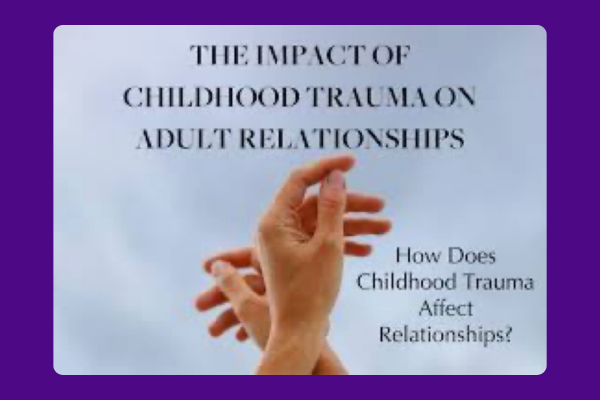
How Childhood Trauma Shapes Adult Life: Understanding the Long-Term Impact
Childhood trauma encompasses a range of distressing experiences, such as abuse, neglect, or household dysfunction, that can profoundly affect an individual’s development. These early adverse experiences can leave lasting imprints on mental, emotional, and physical health, influencing behavior and relationships well into adulthood.
What Is Childhood Trauma?
Childhood trauma refers to the emotional, physical, or sexual abuse, neglect, or household dysfunction experienced during childhood. These experiences disrupt a child’s sense of safety and can lead to significant developmental and psychological challenges.
The Long-Term Effects of Childhood Trauma
1. Mental Health Challenges
Adults who experienced childhood trauma are at a higher risk of developing mental health disorders, including:
- Depression and Anxiety: Persistent feelings of sadness, hopelessness, and excessive worry.
- Post-Traumatic Stress Disorder (PTSD): Flashbacks, nightmares, and heightened arousal related to past traumatic events.
- Personality Disorders: Conditions such as borderline personality disorder, often linked to early relational trauma.
2. Physical Health Issues
The impact of childhood trauma extends beyond mental health, leading to various physical health problems:
- Chronic Pain: Conditions like fibromyalgia, chronic fatigue syndrome, and irritable bowel syndrome.
- Cardiovascular Diseases: Increased risk of heart disease and hypertension.
- Substance Abuse: Higher likelihood of developing dependencies on alcohol, drugs, or other substances.
3. Relationship Difficulties
Trauma experienced in childhood can affect adult relationships in several ways:
- Insecure Attachment Styles: Difficulty in forming healthy, trusting relationships.
- Communication Challenges: Struggles with expressing emotions and needs effectively.
- Repetitive Patterns: Unconscious reenactment of past trauma in relationships, leading to dysfunctional dynamics.
4. Behavioral Impacts
Adults with a history of childhood trauma may exhibit certain behavioral patterns:
- Self-Sabotage: Engaging in actions that undermine personal success and well-being.
- Avoidance: Steering clear of situations or people that may trigger memories of past trauma.
- Hypervigilance: Constantly being on alert for potential threats, leading to stress and anxiety.
Healing from Childhood Trauma
While the effects of childhood trauma are profound, healing is possible. Strategies for recovery include:
- Therapy: Engaging in trauma-focused therapies, such as Cognitive Behavioral Therapy (CBT) or Eye Movement Desensitization and Reprocessing (EMDR).
- Mindfulness Practices: Techniques like meditation and yoga to promote emotional regulation and stress reduction.
- Support Systems: Building a network of supportive relationships with friends, family, or support groups.
- Self-Care: Prioritizing physical health through regular exercise, proper nutrition, and adequate sleep.
The Importance of Early Intervention
Addressing childhood trauma early can significantly reduce its long-term impact. Early intervention helps in:
- Breaking the Cycle: Preventing the transmission of trauma-related behaviors and patterns to future generations.
- Promoting Healthy Development: Supporting emotional and psychological growth during critical developmental periods.
- Enhancing Resilience: Building coping mechanisms that foster strength and adaptability in the face of adversity.
